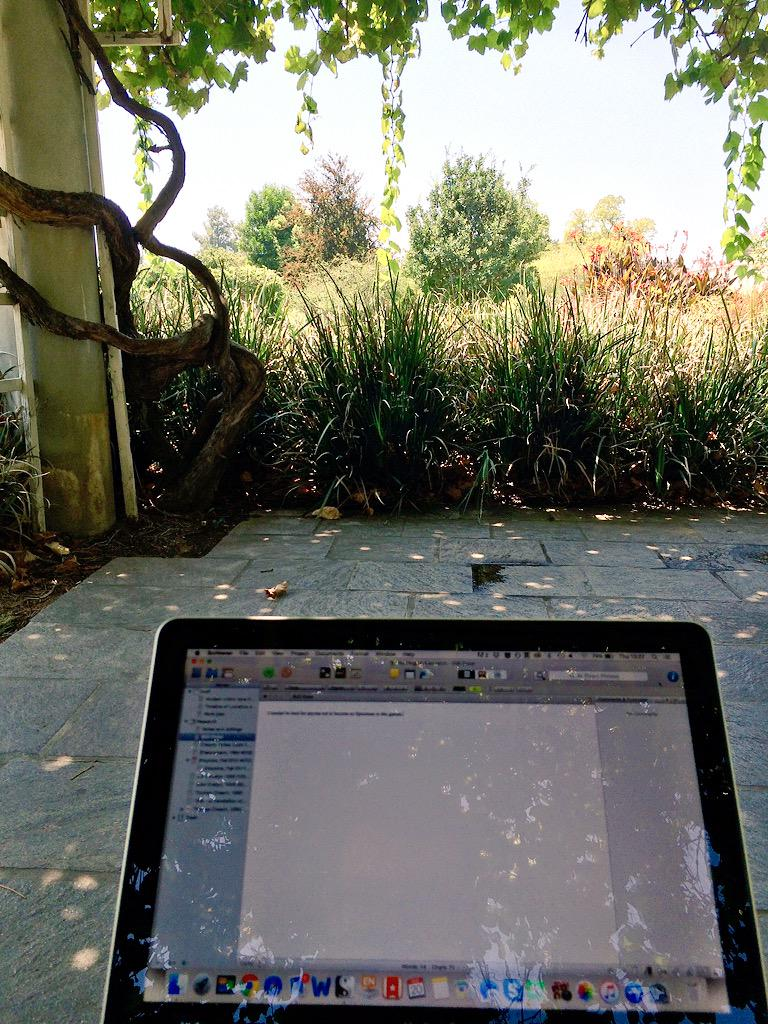James Morland: 'Life, Liberty, and the Pursuit of Happiness'
Writing in the sunshine and looking out over the Huntington gardens, I have a secret to confess. Something that I have been hiding from the books I’ve been researching for the past year, I am the person they are trying so desperately hard to discount and philosophically disarm. I am an Epicurean.
Some might wonder what exactly a research student of eighteenth-century British poetry is doing in Southern California. Yet, by some turns of a revolution and some serial book collecting by an American railroad millionaire, my research is just as at home in San Marino as it is in London.
I share my above confession with one of the Founding Fathers, Thomas Jefferson, who wrote the same in a letter of 1819. Having moved to his country, I find myself asking who couldn’t help but be one when working in a veritable research paradise? A place that has Jefferson’s reverberating political statement to serve the unalienable right of ‘the Pursuit of Happiness’ as one of its treasures on display. Here I have access to the first editions of my texts, reading the very same warnings against the dangers of Epicureanism my eighteenth-century readers would have been, in amongst a garden where a conversion to such a philosophy is all but inevitable.

The Huntington Library, set within its vast botanical gardens, is a unique experience for any researcher, and for me has become my own Epicurean garden. If we are to believe William Temple writing on the Gardens of Epicurus, or, of gardening in the year of 1685, ‘no other sort of abode seems to contribute so much, to both the tranquillity of mind, and indolence of body’ as a garden. As ever, I turn to my research texts which have an uncanny similarity to my current experience, with Temple producing what could easily be a description of researching within the Huntington grounds:
The sweetness of air, the pleasantness of smells, the verdure of plants, the cleanness and lightness of food, the exercises of working or walking; but above all, the exemption of cares and solicitude, seem equally to favour and improve both contemplation and health, the enjoyment of sense and imagination, and thereby the quiet and ease both of the body and mind.
With conversations, philosophical or otherwise, with academics at lunch overlooking the Huntington’s own verdure; walks around the various themed gardens to clear the mind; and finally making up for a seemingly lifetime long vitamin D deficiency, I certainly can’t argue with him. This environment has made a research venture to California my own pursuit of happiness. It is a place where the Epicurean idea of ataraxia, a tranquil state of pleasure free from anxiety, is inevitable.
I apologise to the texts I’m researching as they try on a daily basis to combat this turn towards Epicureanism, but there’s really nothing I could do to stop it, and quite frankly, I’m far too happy to care.
James Morland is a PhD student of English literature at King’s College, London, researching the changing interactions with Lucretius and Epicureanism in eighteenth-century poetry. He is currently an AHRC IPS fellow at the Huntington Library, California. Follow him @jameswmorland.
